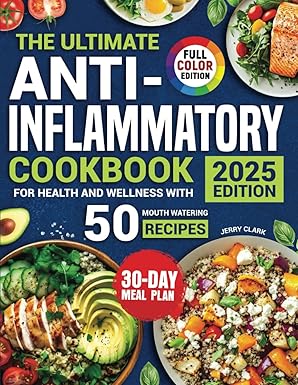Foods that fight inflammation
Doctors are learning that one of the best ways to reduce inflammation lies not in the medicine cabinet, but in the refrigerator. By following an anti-inflammatory diet you can fight off inflammation for good.
Fighting Chronic Inflammation

Eating at least one-and-a-half to two cups of diverse fruits every day can boost antioxidant activity. Fruits are particularly abundant in anti-inflammatory compounds, which are important in protecting our bodies from heart disease, diabetes, and certain forms of cancer and bowel disease.
Berries. From strawberries and blackberries to cranberries and blueberries, these gemlike fruits are particularly potent in antioxidant and anti-inflammatory activity. Along with fiber and vitamin C, berries possess plant pigment phytochemicals, such as anthocyanins and ellagic acid, which may be behind their health benefits. Studies have linked increased berry consumption with lower risks of heart disease, Alzheimer's disease, and diabetes.
Apples. Maybe it's true what they say about an apple a day. A study of nearly 35,000 women, found that consumption of this fruit — along with its relative, pears — was linked with a lower risk of death from heart disease. The star components of apples — fiber, vitamin C, pectin, and polyphenols — have been associated, primarily in animal studies, with anti-inflammatory effects and an increase in beneficial microbes in the gut.
Stone fruits. Cherries, peaches, apricots, and plums are all examples of stone fruits. These fruits contain fiber, vitamin C, potassium, and a variety of phytochemicals associated with their colors. For example, cherries have garnered the lion's share of the research among stone fruits. Some studies suggest that cherries can reduce pain and soreness after exercise as well as a reduced risk of gout attacks. The high levels of phenolic compounds in cherries, which have been linked to reduced inflammation, may be behind those benefits.
Citrus. Oranges, grapefruit, lemons, and limes are famously rich in vitamin C. They also contain fiber, potassium, calcium, B vitamins, copper, and anti-inflammatory phytochemicals such as flavonoids and carotenoids. Though there is little human research on citrus, the nutrients found in citrus fruits have been associated with heart-protective effects.
Great Reminder !!!!!

Magnesium glycinate:
Magnesium and depression: a systematic review.
A higher intake of dietary magnesium seems to be associated with lower depression symptoms though reverse causality cannot be excluded.  The results assessing the association between blood and cerebrospinal fluid magnesium and depression are inconclusive.
The results assessing the association between blood and cerebrospinal fluid magnesium and depression are inconclusive.
Competitively priced item amazon prime



